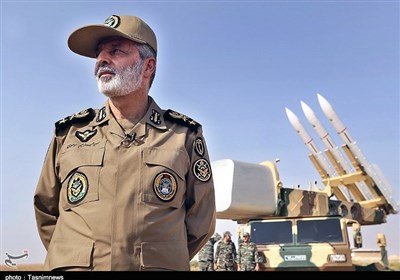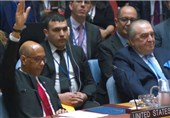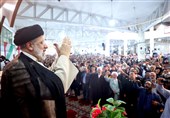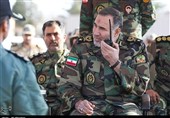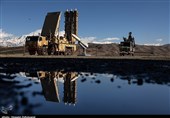Japan Protests South Korean Military Drills near Contested Islands
TEHRAN (Tasnim) - South Korea has angered Japan by staging military drills near a contested island chain, even as it discusses scaling back joint "war games" with the US to de-escalate tensions with North Korea.
The South Korean military dispatched six warships, including the 3,200-ton destroyer Yangmanchun, and aircraft including F-15K fighter jets and Black Hawk helicopters to practice the defense of what South Korea calls the Dokdo Islands in waters east of the Korean Peninsula.
The islands are also claimed by Japan, where they are known as the Takeshima.
The South Korean drills, which it usually conducts twice a year, are expected to last two days.
Japan's Foreign Ministry on Sunday called on South Korea to stop the exercises.
"From Japan's position on territorial right of Takeshima, we can't accept this case at all and it is extremely regrettable," a ministry statement said, CNN reported.
The South Korean drills come less than a week after US President Donald Trump said Washington would stop "war games" with Seoul in an effort to ease tensions during nuclear negotiations with North Korea and to save money.
"Under the circumstances, that we're negotiating a very comprehensive complete deal, I think it's inappropriate to have war games ... It is something that (North Korea) very much appreciated," Trump said at a news conference in Singapore after meeting with North Korean leader Kim Jong Un.
Trump's announcement appeared to catch the US military and US allies in South Korea and Japan off guard, and a statement from the US military over the weekend said it was still evaluating how Trump's plan would be implemented.
But reports suggested the President's plan applied only to large-scale exercises involving thousands of troops.
And the "war games" freeze would not affect South Korea's unilateral exercises like the one it began Monday around the small island chain.
The status of the islands, 217 kilometers (135 miles) from the South Korean coast, has been disputed for centuries.
Japan claims the rocky outcrops, two larger islands and 89 small islets, have been its sovereign territory since the 17th century. South Korea says its claims to them date back to the sixth century.
South Korea cemented its control over the islands in the 1950s, when it stationed armed guards there. Only a handful of people live on the islands, manning a lighthouse and a coast guard station.
Their status has sparked tensions between Tokyo and Seoul sporadically over the past decades, including twice this year -- before the Winter Olympics in South Korea and before the May summit between Kim and South Korean President Moon Jae-in.
In the former case, some versions of the unification flag used for the combined Korean team at the Games had a tiny dot meant to represent the islands to the right of the Korean Peninsula silhouette. Japan protested, and South Korea's Unification Ministry confirmed that a flag without the dot was used during the games.
In the latter case, Tokyo lodged a formal protest with Seoul about the mango mousse planned for the dinner between the two Korean leaders because the dish featured a map that included the islands.


